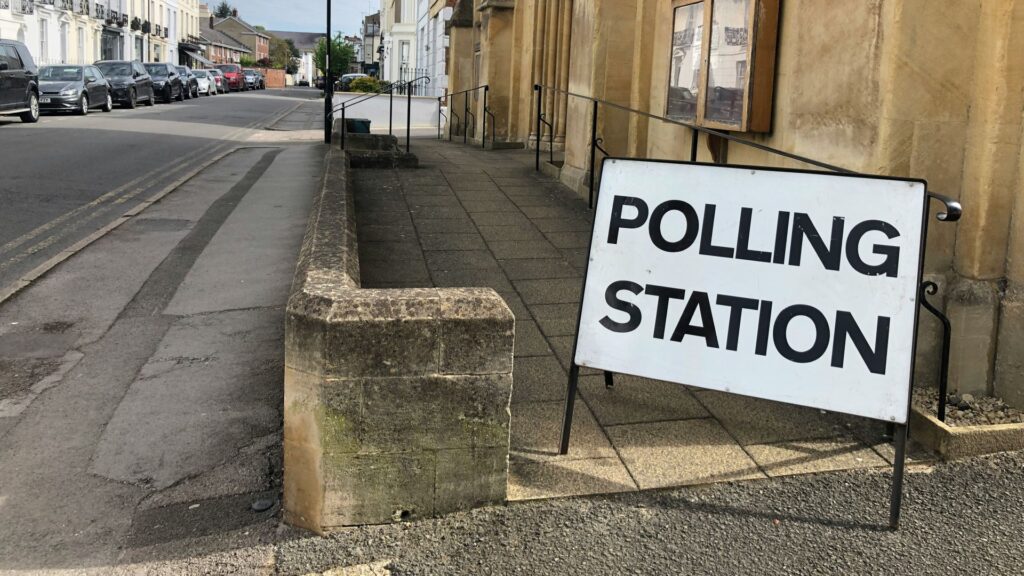In 2016, a male former professional footballer spoke out about the abuse he’d endured as a child at the hands of his football coach, opening the door for hundreds of other victims of child sexual abuse in sport to come forward. This revealed that the problem was largely underreported and often went ignored by the people in charge.
Professor Mike Hartill has been working with victims of historical child sexual abuse in sport since the early 2000s. His research, in collaboration with victims, support organisations and the sport sector, ensures that the voices and concerns of victims are at the forefront of future decision-making around safeguarding in sport.
His work has contributed to changes to safeguarding policy, led to the establishment of victim-led advisory panels in sport and, most importantly, given victims the chance to engage directly with the sports sector and have an impact on future prevention. Ultimately, it has changed the way child sexual abuse is viewed and acted on by sporting organisations and government bodies in the UK and Europe.
“Sport provides a context conducive to sexual abuse and it is only through radical cultural change that this problem can be addressed.”
Mike Hartill, Professor in the Sociology of Sport

Talking to the top
Professor Mike Hartill was the only academic adviser to the recent FA inquiry into child sexual abuse across football, and his research has shaped forthcoming recommendations – impacting on generations of football players to come.
Addressing a culture of toxic masculinity in sport
Understanding sexual abuse of boys in sport is key to changing the hyper-masculine culture that silences the voices of all victims – men and boys, girls and women – and Edge Hill is playing a major role in making this happen.
To date, research and policy-making has largely ignored male sexual abuse. Professor Hartill argues that this perpetuates a culture of masculinity in sports coaching that normalises inappropriate behaviour to this day. He suggests that this culture contributed to a widespread ‘cover up’ of historical sexual abuse and that perpetrators were not limited to just a few ‘bad apples’. He also found that access to the corridors of power by those trying to address the issue was limited.

Building on this research, Professor Hartill is currently working on a pan-European study with six countries on the prevalence of abuse in sport. This study looks beyond sexual abuse to focus on emotional and psychological abuse, and the everyday inappropriate behaviour that has become normalised in sport.
Through his research, Professor Hartill is informing the national debate about abuse in sport and providing guidance for how the sports sector might improve its policies and practice. This work is, ultimately, helping to drive cultural change in sport, making it a healthier environment where everyone involved can flourish without fear of violence, harassment and abuse.
Learning from lived experience
Giving victims a platform to tell their stories, beyond a few news articles when a high profile case of child sex abuse in sport hit the headlines, was at the heart of Professor Hartill’s research.
Through detailed biographical accounts, the research allowed the lived experience of victims to be heard, and provided a space for them to tell their story on their own terms for the first time. As well as talking about the abuse and its impact on them as children and adults, participants offered other details about their life, allowing Professor Hartill to put their experiences into social, cultural and historical context.
Many victims found taking part in the research and contributing to future prevention of child sexual abuse in sport a positive and empowering experience.

As a result of this research, the British sport sector significantly changed its approach to victims of sexual abuse, making it the first to formally include survivors within its child protection and safeguarding decision-making process.
Valuing the voices of victims
A highly original group within Sport England is making history by providing a space for victims of sexual abuse to engage directly with sports bodies on prevention activities.
Professor Hartill’s research with victims led to the creation of the VOICE project which brought together people with lived experience of abuse in sport to develop tangible events, products and activities that the sport sector could engage with to learn about the research and improve their practice. These included seminars, presentations and a conference.
As a result of the VOICE project, Sport England established a unique safeguarding advisory panel made up of people with lived experience of sexual abuse in sport. It is the first time survivors have been invited to participate in decision-making at such a high level in UK sport.

“During my time with the Sport England Advisory Panel (SEAP), it is apparent that it has helped to foster an acceptance in the sports community that those with ‘live experience’ of sexual abuse have a unique contribution to make in the development of safe sport policies. It has also created a genuine collaboration with survivors of sexual violence and the broader sports community.”
SEAP member and sexual abuse survivor
Our research means that
- Survivors of child sexual abuse have a platform to share their lived experience of abuse, directly engage with the sport sector and play a part in future safeguarding and prevention in sport.
- Sporting bodies have unique and powerful evidence to inform policies designed to prevent child sexual abuse in sport.
- Future generations of children will be able to take part in sport without fear of abuse.
Find out more about Professor Mike Harthill’s research by viewing their profile on Pure:
Professor Mike Hartill’s researchApril 25, 2022



